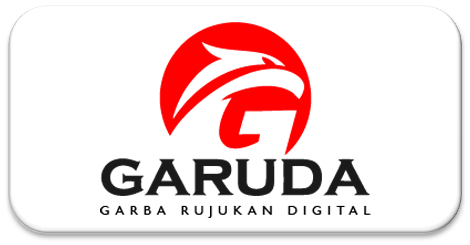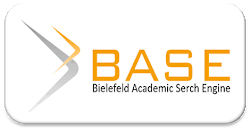Promoting Inclusive Islam: The Role of Social Media in Fostering Religious Tolerance in the Digital Era
DOI:
https://doi.org/10.22373/jsai.v6i1.5754Keywords:
Inclusive Islam, Religious Tolerance, Social Media, Religion and MediaAbstract
This study explores the role of social media in promoting inclusive Islam and fostering religious tolerance in the digital era. Inclusive Islam, which emphasizes openness, respect for diversity, and peaceful coexistence, serves as a framework for engaging with individuals of different beliefs while maintaining one’s religious identity. Fundamental principles such as tawhid (oneness of God), justice, and compassion form the foundation of inclusivity in Islam. Tolerance in this context refers to accepting religious differences while upholding personal faith, as reflected in the prohibition of religious coercion and the recognition of pluralism. Despite these principles, challenges such as radicalism, misinterpretation of teachings, and the impact of globalization continue to pose barriers to inclusivity. This research employs a qualitative approach, utilizing descriptive analysis of written texts and media case studies, with a focus on literature review and content analysis. Findings indicate that social media platforms—especially YouTube—play a crucial role in disseminating inclusive Islamic narratives. Platforms like Jeda Nulis, managed by Habib Ja’far, actively promote interfaith dialogue, counter religious misconceptions, and present Islam as rahmatan lil ‘alamin (a mercy to all creation). However, the effectiveness of social media in spreading inclusive Islamic values is hindered by algorithmic biases, misinformation, and resistance from conservative groups. Addressing these challenges requires collaborative efforts from media practitioners, religious scholars, and policymakers to strengthen digital religious literacy, support content creators, and optimize social media algorithms. This study contributes to media and religious studies by demonstrating how social media can serve as a strategic tool for fostering interfaith understanding and strengthening religious tolerance in a digitally connected world.
References
Abidin, Yunus. 2012. “An Authentic Assessment Model in the Teaching and Learning of Character Education-Based Reading Comprehension.” Jurnal Pendidikan Karakter 164–78.
Abidin, Zain. 2013. “Islam Inklusif: Telaah Atas Doktrin Dan Sejarah.” Humaniora 4(2):1273. doi: 10.21512/humaniora.v4i2.3571.
Affandi, Muhajir. 2017. Komunikasi Propaganda Suatu Pengantar. cet. 1. Yogyakarta: Deepublish.
Ammar, Miftakhul. 2019. “Konsep Mahabbah Sebagai Dasar Terciptanya Kerukunan Umat Beragama.” Institut Agama Islam Negeri Kudus.
Amri, Khairul. 2021. “Moderasi Beragama Perspektif Agama-Agama Di Indonesia.” Living Islam: Journal of Islamic Discourses 4(2). doi: 10.14421/lijid.v4i2.2909.
Azmi, Ulul. 2008. “Konstruksi Realitas Islam Di Media Massa : Analisis Framing; Konflik Palestina Israel Di Harian Kompas Dan Republika.” UIN Syarif Hidayatullah Jakarta.
Bergen, Mark. 2022. Like, Comment, Subscribe: Inside YouTube’s Chaotic Rise to World Domination. New York: Penguin.
Beutler, Ingrid. 2008. “Sport Serving Development and Peace: Achieving the Goals of the United Nations through Sport.” Sport in Society.
Bilewicz, Michał, and Wiktor Soral. 2020. “Hate Speech Epidemic. The Dynamic Effects of Derogatory Language on Intergroup Relations and Political Radicalization.” International Society of Political Psychology.
Doly, Denico. 2013. “Urgensi Perubahan Undang-Undang Nomor 32 Tahun 2002 Tentang Penyiaran.” Negara Hukum 4(2):215–30.
Faiqah, Fatty, and Andi Subhan Amir. 2016. “Youtube Sebagai Sarana Komunikasi Bagi Komunitas Makassarvidgram.” KAREBA : Jurnal Ilmu Komunikasi 5(2).
Fanani, Ahwan. 2012. “Naskah Risālah Shattariyyah Gresik.” Walisongo 20(November 2012):347–70.
Farhan, Ahmad. 2017. “Living Al-Qur’an Sebagai Metode Alternatif Dalam Studi Al-Qur’an.” El-Afkar 6:88.
Ginting, Rosalina, and Kiki Ayaningrum. 2009. “Toleransi Dalam Masyarakat Plural.” Jurnal Ilmiah Majalah Lontar 23(4):1–7. doi: 10.26877/LTR.V23I4.665.
Grunebaum, Gustave E. Vo. 1983. Islam Kesatuan Dalam Keragaman. Jakarta: yayasan obor indonesia.
Habibi, Moh. Mizan. 2023. “Pendidikan Islam Inklusif.” Studia Religia : Jurnal Pemikiran Dan Pendidikan Islam 7(1):35–48. doi: 10.30651/sr.v7i1.18261.
Khalid, Zaenal. 2020. “Eksklusivisme Tafsir: Konsep Keberagamaan Dalam Tafsir Muhammad Bin Salih Al-‘Uthaimin.” Sekolah Pascasarjana UIN Syarif Hidayatullah Jakarta.
Kurniadi, Hayatullah, and Mohamad Hizasalasi. 2017. “Strategi Komunikasi Dalam Kampanye Diet Kantong Plastik Oleh Gidkp Di Indonesia.” Medium 6(1):21–31. doi: 10.25299/medium.2017.vol6(1).1085.
Kusumasari, D., and S. Arifianto. 2020. “Makna Teks Ujaran Kebencian Pada Media.” Jurnal Komunikasi.
Labas, Yessi Nurita, and Daisy Indira Yasmine. 2017. “Komodifikasi Di Era Masyarakat Jejaring: Studi Kasus YouTube Indonesia.” Jurnal Pemikiran Sosiologi 4(2):108–25.
Laksono, Puji. 2019. “Kuasa Media Dalam Komunikasi Massa.” Al-Tsiqoh (Dakwah Dan Ekonomi) 4(2):49–61.
Maghriza, Muhammad Taufiq Ridlo, Irwan Ledang, and Uci Purnama Sari. 2023. “Tawazun Sebagai Prinsip Wasathiyyah Dalam Kehidupan Muslim Kontemporer.” INSANI : Jurnal Ilmu Agama Dan Pendidikan 1:164–82.
Majid, Abdul, and Said Amirulkamar. 2023. “Identity Politics Approaching the 2024 Election through Social Media Through Sociology of Religion Perspective.” Journal of Governance and Public Policy 10(3):274–87. doi: 10.18196/jgpp.v10i3.18088.
Maulana, Tesa. 2022. “‘Konsep Anti-Galau Dalam Al- Qur’an (Kajian Semantik Khauf Dan Huzn).’”
Mubarak. 2019. “Yahudi Dan Islam Dalam Lintas Sejarah (Studi Perspektif Islam Terhadap Yahudi).” Jurnal Al-Adyan 6(2):241–59.
Nandan, Shiva. 2005. “An Exploration of the Brand Identity–Brand Image Linkage: A Communications Perspective.” Journal of Brand Management.
Nirwana, Andi, and Muhammad Rais. 2019. “Toleransi Antar Umat Beragama Islam Dan Kristen Pada Masyarakat Kelurahan Paccinongang Kecamatan Somba Opu Kabupaten Gowa.” Jurnal Al Adyaan 6(2):185–218.
Nur, Emilsyah. 2021. “Peran Media Massa Dalam Menghadapi Serbuan Media Online the Role of Mass Media in Facing Online Media Attacks.” MAJALAH SEMI ILMIAH POPULER KOMUIKASI MASSA 2(1):51–64.
Porter, Constance Elise. 2015. “Virtual Communities and Social Networks.” Degruyter.Com.
Putra, A. A. P., D. Kurniasari, M. N. Adhim, and ... 2023. “Implikasi Media Terhadap Dinamika Partisipasi Politik Di Era Digital.” Journal Of Global Humanistic Studies Philosophiamundi.Id 1(2):1–6.
Putranto, Algooth, and Arsa Widitiarsa Utoyo. 2019. “Simbiosis TV Free to Air Dengan Situs Web Berbagi Video (Studi Kasus TV Jakarta Yang Mengalihkan Konten Ke Saluran YouTube).” Journal Visioner : Journal of Television 4(1):30–40.
Rahardjo, Mudjia. 2011. Metode Pengumpulan Data Penelitian Kualitatif. Malang: Universitas Islam Negeri Maulana Malik Ibrahim Malang.
Ramadhini, Hikmah. 2017. “KALIMAH KATABA WA MUSHTAQATIHA FI SURAH ALI IMRAN (DIRASAH DALALIYYAH SIYAQIYYAH).”
Ritonga, Irfan Azhari, Noviani, Nurul Hidayah Napitupulu, and Putri Wahyuni Sinaga. 2023. “Studi Masyarakat Tradisional, Transisi, Modern, Pedesaan Dan Perkotaan.” Ta’rim: Jurnal Pendidikan Dan Anak Usia Dini 4(Pendidikan):99–107.
Rosyidi, Mohammad Fuad Al Amin. 2019. “Konsep Toleransi Dalam Islam Dan Implementasinya Di Masyarakat Indonesia.” Jurnal Madaniyah 9(2):277–96.
Rumata, Fathurrrahman ’Arif, Muh. Iqbal, and Asman Asman. 2021. “Dakwah Digital Sebagai Sarana Peningkatan Pemahaman Moderasi Beragama Dikalangan Pemuda.” Jurnal Ilmu Dakwah 41(2):172–83. doi: 10.21580/jid.v41.2.9421.
Septian, Ade. 2017. “Pemikiran Nurcholish Madjid Tentang Dakwah Inklusif.” AL QOLAM Jurnal Dakwah Dan Pemberdayaan Masyarakat 2(2):115–41.
Setiadi, Ahmad. 2016. “Menjaga Moderasi Beragama Di Era Digital: Tantangan Dan Strategi Menghadapi Teknologi Maintaining Religious Moderation in the Digital Age: Challenges and Strategies for Facing Technology.” Cakrawala-Jurnal Humaniora (1):71–82. doi: 10.52738/pjk.v2i1.102.
Sugiyono. 2013. Metode Penelitian Pendidikan Pendekatan Kuantitatif, Kualitatif, Dan R&D. Bandung: Alfabeta.
Sukandar, Rudi. 2019. “Membangun Inklusivitas Dan Toleransi : Program CERITA The Habibie Center.” Jurnal Abdi Moestopo 02(02):57–62.
Sukro, Ahmad Yakub, and Andi Tri Haryono. 2018. “Urgensi Etika Bisnis Dalam Mengakomodir Ketertiban Pemasaran Perusahaan Periklanan (Tinjauan Yuridis Undang-Undang Nomor 32 Tahun 2002 Tentang Penyiaran).” Qistie 11(1):12–27. doi: 10.31942/jqi.v11i1.2217.
Sule, Muhammad Maga, and Attahir Shehu Mainiyo. 2023. “Effectiveness of Social Media Platforms in Disseminating Qur’Anic Teachings Among Contemporary Muslims.” Spektra: Jurnal Ilmu-Ilmu Sosial 5(1):47–64. doi: 10.34005/spektra.v5i1.2668.
Suryan, Suryan. 2017. “TOLERANSI ANTARUMAT BERAGAMA: PERSPEKTIF ISLAM.” Jurnal Ushuluddin 23(2):185. doi: 10.24014/jush.v23i2.1201.
Susanto, Harry, and Tommy Michael. 2023. “Akuntabilitas Dan Justifikasi Peningkatan Dana Negara Terhadap Partai Politik.” Socius: Jurnal Penelitian Ilmu-Ilmu … 1(December):371–88.
Ulfa, Maulida. 2024. “Maintaining Religious Moderation in the Digital Age: Challenges and Strategies for Facing Technology.” Book Chapter of Proceedings Journey-Liaison Academia and Society 3(1):43–63.
Wasik, Abdul, and Gerardette Philips. 2022. “Konsep Toleransi Beragama Perspektif Integritas Terbuka (Analisis Dialog Para Agamawan Pada Channel Youtube Jeda Nulis).” Integritas Terbuka: Peace and Interfaith Studies 1(1):1–12. doi: 10.59029/int.v1i1.1.
Zen, Muhammad Aldan Nur, and Andri Sahata Sitanggang. 2023. “Analisis Dampak Sosial Media Dalam Pengembangan Sistem Informasi.” Cerdika: Jurnal Ilmiah Indonesia 3(7):671–82. doi: 10.59141/cerdika.v3i7.647.
Downloads
Published
How to Cite
Issue
Section
License
Copyright (c) 2025 Hendi Supriatna, Dadang Kuswana, Acep Saprudin

This work is licensed under a Creative Commons Attribution-NonCommercial-ShareAlike 4.0 International License.
- Authors retain copyright and grant the journal right of first publication with the work simultaneously licensed under an Attribution-NonCommercial-ShareAlike 4.0 International (CC BY-NC-SA 4.0) that allows others to share the work with an acknowledgment of the work's authorship and initial publication in this journal.
- Authors are able to enter into separate, additional contractual arrangements for the non-exclusive distribution of the journal's published version of the work (e.g., post it to an institutional repository or publish it in a book), with an acknowledgment of its initial publication in this journal.
- Authors are permitted and encouraged to post their work online (e.g., in institutional repositories or on their website) prior to and during the submission process, as it can lead to productive exchanges, as well as earlier and greater citation of published work.













